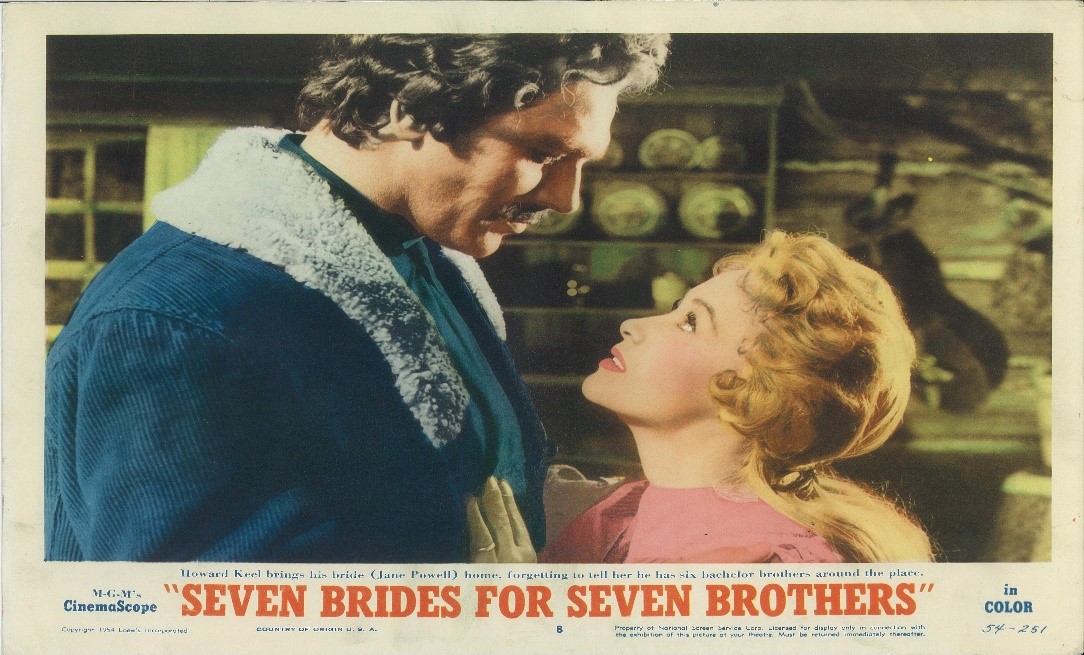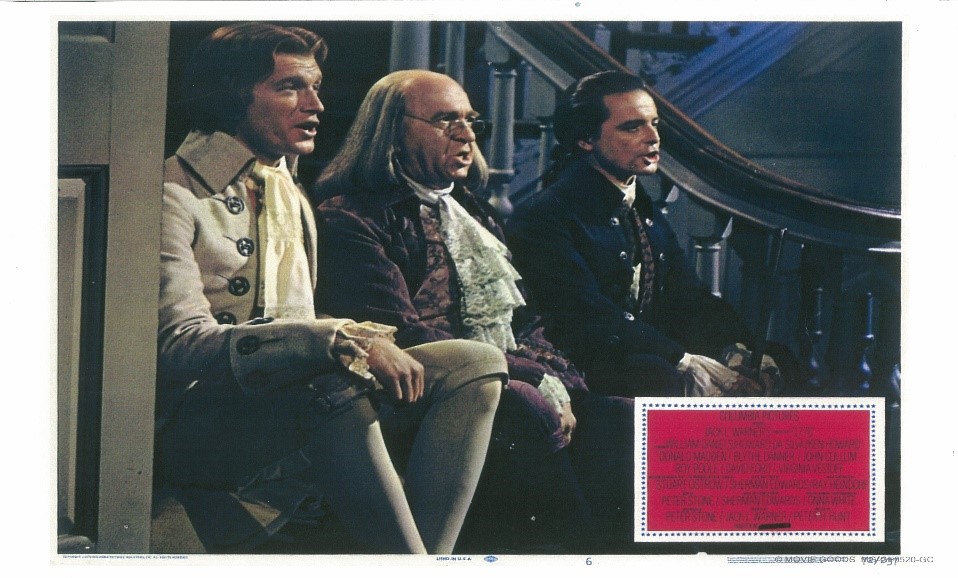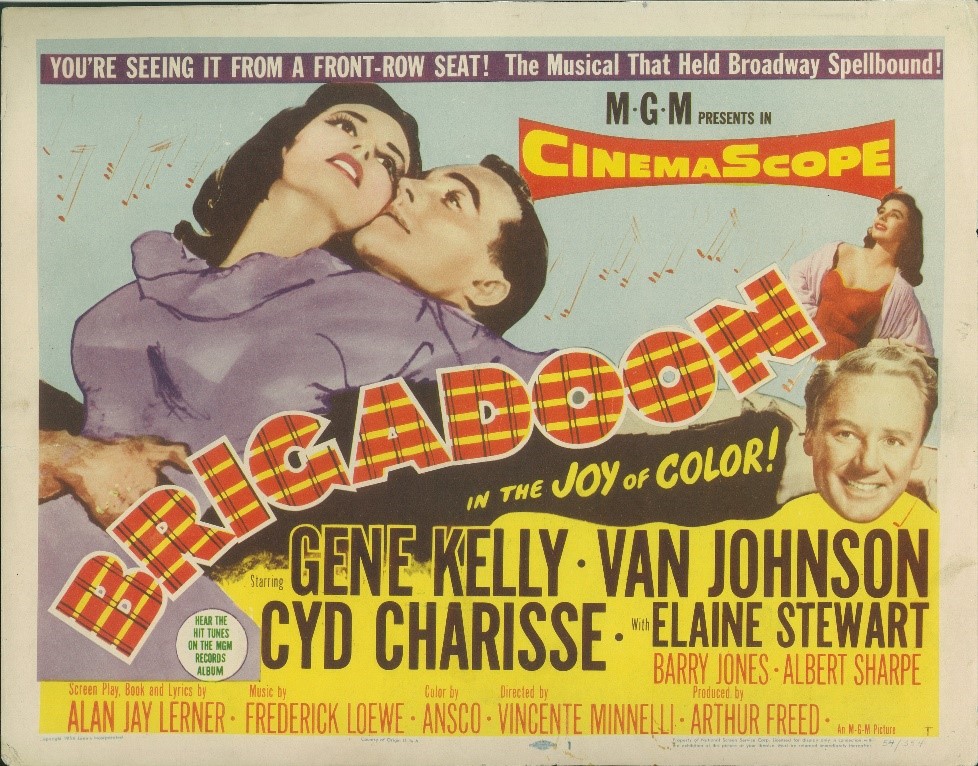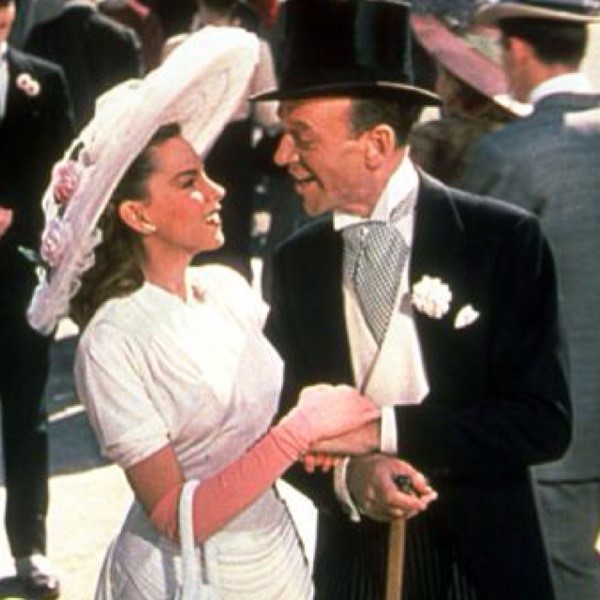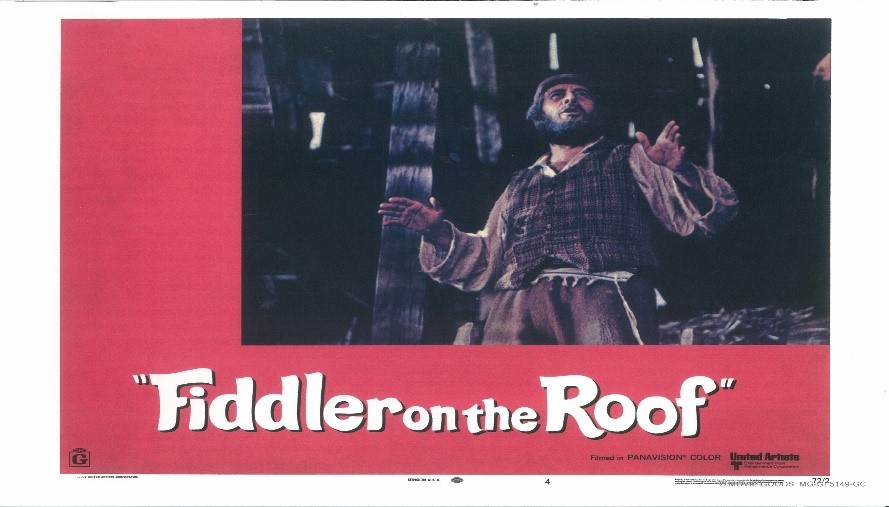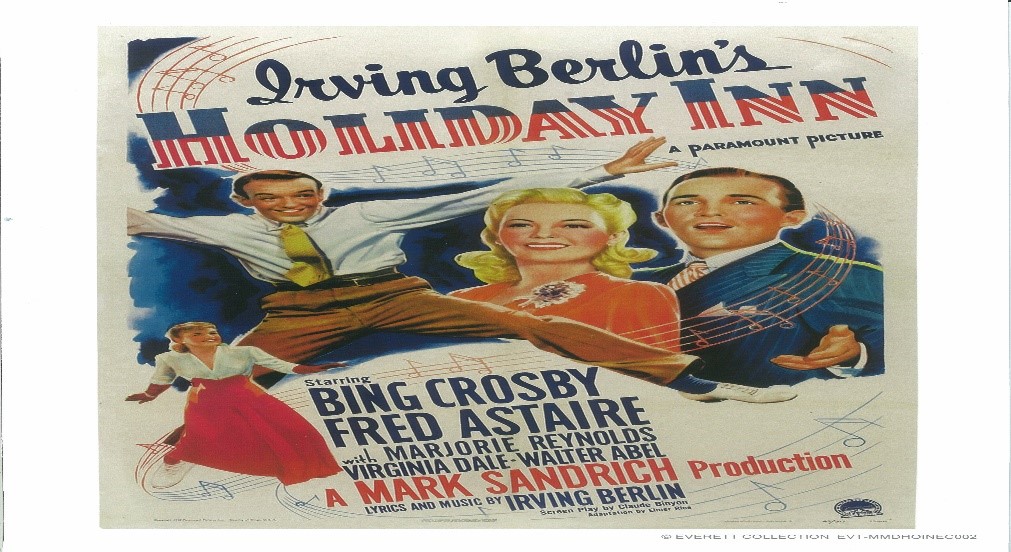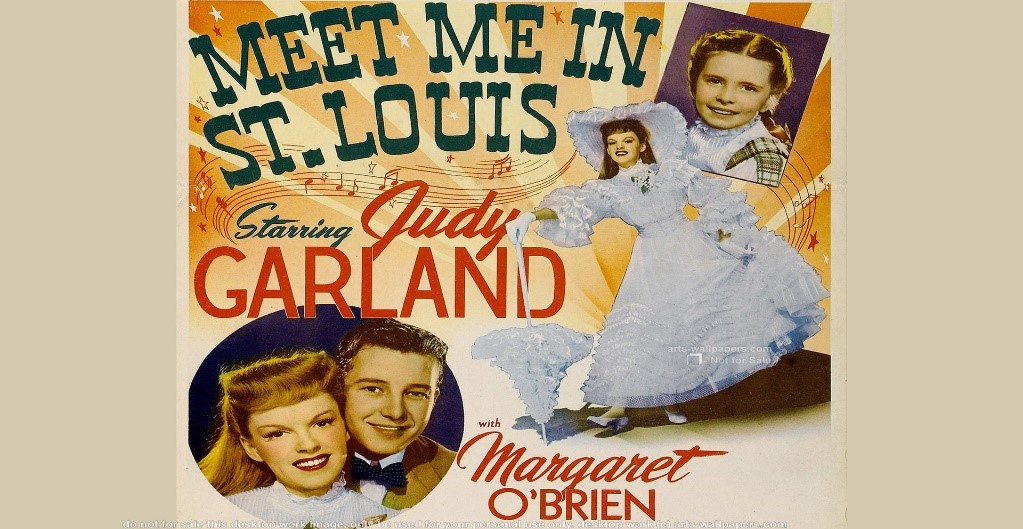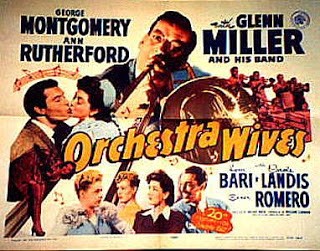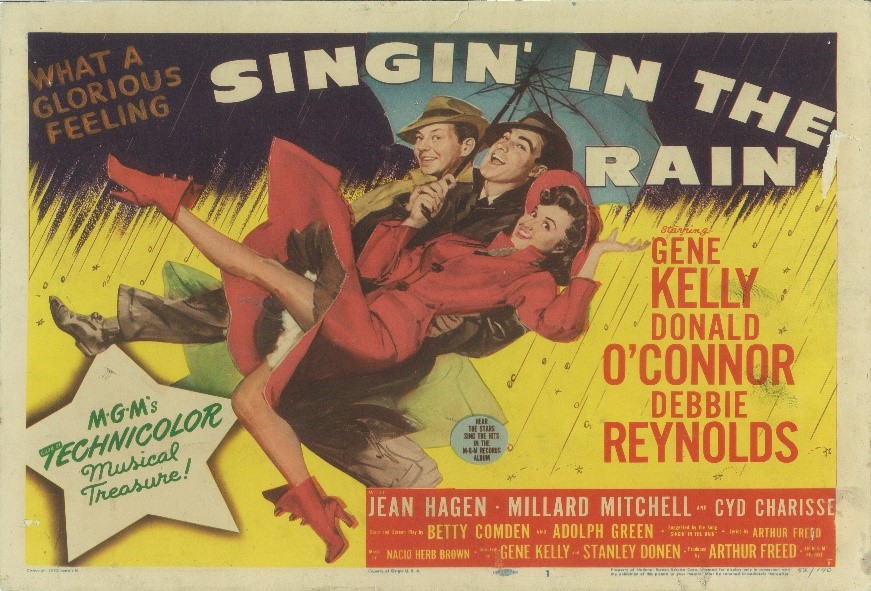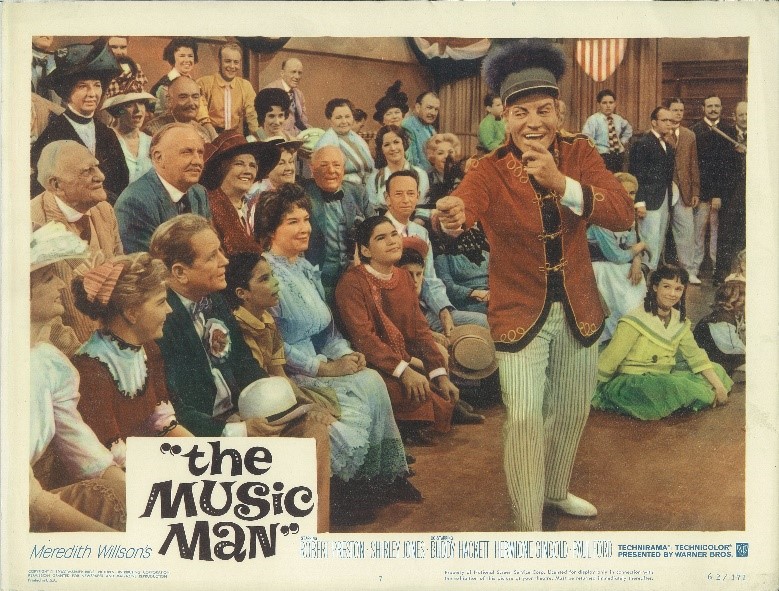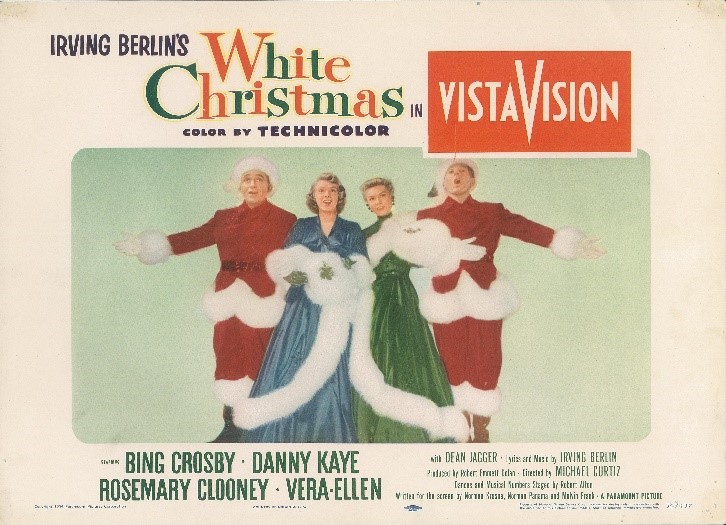“You remind me I live in a shell…My life goes along as it should. It's all very nice, but not very good.
And I'm ready to take a chance...
Ready to put my love on the line with you!”
Barry Manilow, 1978
Discovering the person you want to be, finding the partner who will help you become that person, can be a great journey ~well worth putting your “love on the line.”
As we continue exploring the new edition of Movies and Music: A Guide To Turning The Classic Movie Musical Into An Interactive Event, we find Tevye’s daughters, (Tzietel, Hodel, and Chava), are on such a journey.
Welcome to the September, 2016 Edition~ Fiddler on the Roof
The girls journey into a new and changing world. A world that provides them with opportunities to meet new people and become their own matchmakers.
In pursuing independent matches, either by design, (Tzietel and Motel), or accident, (Hodel and Perchik, Chava and Fyedka), each girl comes out of her shell, and realizes the life she led, was nice, (Papa arranged the matches, Mama taught us to be good wives and mothers.), but not very good. (“Up to this minute I misunderstood that I could get stuck, for good!”)
With a clear understanding of their ideal man, (“someone interesting, well-off, important, as handsome as anything”), they each are “ready to put love on the line.”
Tzietel and Motel were children together; (“they laugh, they talk, they play”.)
Hodel and Perchik met and courted in her home, while Tevye watched. (Tevye: “I know you like him and he likes, you!” Hodel: “You don’t understand Papa; we are not asking for your permission, only for your blessing.”)
Chava and Fyedka met and fell in love in secret. Chava asserts, “the world is changing Papa!” She believes, in a new world, they can live happily.
Unfortunately, the older generation is not so easily persuaded to accept the changing world.
Tevye has led a traditional life. He knows who he is, and what is expected of him. When his daughters break with tradition, he can bend, (by allowing his elder daughters to marry their own choices, within the faith), but he cannot break, (“a bird may love a fish but where would they live?”)
As the characters deal with great change, and these women break with tradition, to become independent and empowered, now may be a good time to pose this month’s thought provoking question:
What is it about the movie musical, that makes us happy when we’re sad, make us want to sing, reminisce, explore social behavior, and find that second chances are always welcome?
Firstly, the movie musical is the epitome of the chance at love, (whether it be first or second.)
The central characters are experiencing their first loves. Golda and Tevye, however, are finding that even if the marriage was arranged, they really do love each other after 20 years (“Do You Love Me?”)
Secondly, Fiddler gives you, your clients, and family members, great opportunities to reminisce.
Begin by sharing stories of the first meeting. Were you “matched” by a friend (Golde and Tevye)? Did you marry your childhood sweetheart (Tzietel and Motel)? Did you meet by chance (Hodel and Perchik)? Did you share a common interest (a love of books; Chava and Fyedka)?
Progress to how your family dealt with your engagement, were they supportive? Did you ask for permission or a blessing?
When married, did you make the decision to live away from your family? What was it like building a life together?
Thirdly, this film is filled to the brim with references to social behavior and social order.
The village is governed by the Czar, but blessed by the rabbi, who sits at the eastern wall in prayer. A man whom Tevye wishes to emulate:
“The most important men in town would come to fawn on me! They would ask me to advise them, Like a Solomon the Wise.
"If you please, Reb Tevye..." "Pardon me, Reb Tevye..." Posing problems that would cross a rabbi's eyes!”
This society does allow poor men, like Tevye, to be the king of their castles, “have the final word at home,” while their wives raise children, and teach the daughters to “mend and tend and fix.”
What are the social ramifications of daughters asserting their independence? How can change strengthen families and society?
You decide as you sing a song, share a story, and connect with your clients, students, family members from Sunrise to Sunset!
~~Lori
Coming in October: Join Esther, Rose, and the Smith family, as they look for love at the World’s Fair in Meet Me in St. Louis

